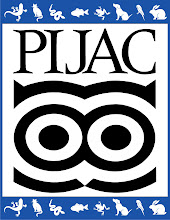Note - For more information, please see our first blog post on this issue and download PIJAC's PetAlert at:
http://www.pijac.org/_documents/us_fws_amphibian_noi_2010.pdf
THE ISSUE
The Fish and Wildlife Service (FWS) has published a Notice of Inquiry seeking information on the importation and transportation of live amphibians or their eggs and Batrachochytrium dendrobatidis (chytrid fungus). The FWS Notice is a response to a Petition submitted by Defenders of Wildlife on September 9, 2009 to list “all live amphibians or their eggs in trade as injurious unless certified free of Batrachochytrium dendrobatidis (chytrid fungus).
The FWS Notice seeks information on the biological, economic or other trade data regarding the addition of live amphibians as injurious unless free of the fungus.
The service is soliciting information and supporting data from the pubic including information responding to the following questions:
1. What Federal, State, or tribal regulations exist to prevent the spread of chytrid fungus?
4. How many businesses sell live amphibians or their eggs for interstate commerce?
5. What are the annual sales of these imported live amphibians and their eggs?
6. What species of amphibians, fish, or other class of animal have been affected by chytrid fungus in the United States and were they infected?
7. What are the current and potential effects to species listed as threatened or endangered under the Endangered Species Act that are contaminated with chytrid fungus?
8. What are the potential costs of recovering threatened or endangered species affected by chytrid fungus?
9. What is the likelihood that wild amphibians would be affected by the importation of live amphibians or their eggs that harbor chytrid fungus?
10. What would it cost to eradicate chytrid fungus?
11. Are there any potential benefits to allowing the chytrid fungus pathogen to be imported?
12. What is the potential for the industries that conduct trade in amphibians to self-police through voluntary best practices; for example, how successful is the “Bd-Free Phibs Campaign” sponsored by the Pet Industry Joint Advisory Council? [Note from PIJAC – please see www.bd-freephibs.com. This website has just been launched by PIJAC. The program is open to anyone addressing Bd in the ex-situ (captive) context. We encourage you to fill out a partner profile]
13. What peer-reviewed methods for detecting chytrid fungus have been published?
14. Are there any other comments or information regarding the listing if live amphibians as injurious unless free of chytrid fungus?
THE IMPACT
What would be the impact if listed? Importation into the United States, export from the United States and interstate movement would be prohibited unless they are free of chytrid fungus. Every shipment would have to be accompanied by a written declaration prescribed by the FWS that “indicates the shipment meets or exceeds the recommendation [certification and handling system] of the World Health Organization for Animal Health in its Aquatic Animal Health Code on Batrachochytrium dendrobatidis.” The estimated cost to obtain the written declaration and associated shipment/transport clearance has not been provided by the FWS.
HOW TO RESPOND
Comments should be submitted by no later than December 16, 2010 by one of the following methods:
- Post via the internet http://www.regulations.gov. Follow the instructions for submitting comments to Docket No. FWS-R9-FHC-2009-0093.
- Mail or hand-delivery your comments: Public Comments Processing, Attn: Docket No. FWS-R9-FHC-2009-0093, Division of Policy and Directive Management, U.S Fish and Wildlife Service, 4401 North Fairfax Drive, Suite 222, Arlington, VA 22203.
Additional information may be obtained by contacting Susan Jewell, Branch of Aquatic Invasive Species, U.S. Fish and Wildlife Service, MS 770, 4401 North Fairfax drive, Arlington, VA 22203; telephone 703-358-2416.
PIJAC is working with other potentially affected stakeholder groups in addition to the pet industry to collect relevant data as well as establish means of communication and dialogue among interested PIJAC members. PIJAC will also set up listening sessions with technical experts.
PIJAC is also conducting a thorough analysis of the proposal and response.
PIJAC invites you to visit the Bd-free Phibs website to learn more about the issue and input a partner profile if you are a already engaged in testing and treatment, etc. If you are an amphibian keeper/hobbyist or business involved in the commercial trade in amphibians, visit the website to see how you can become better educated and involved.




